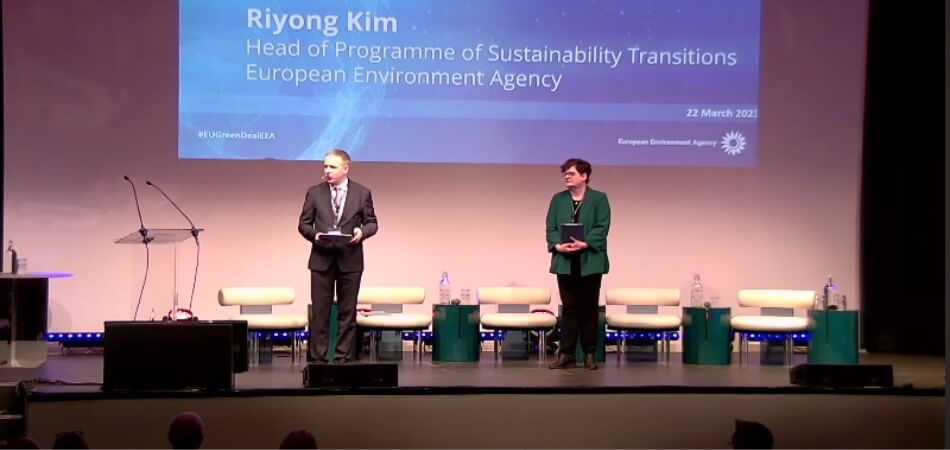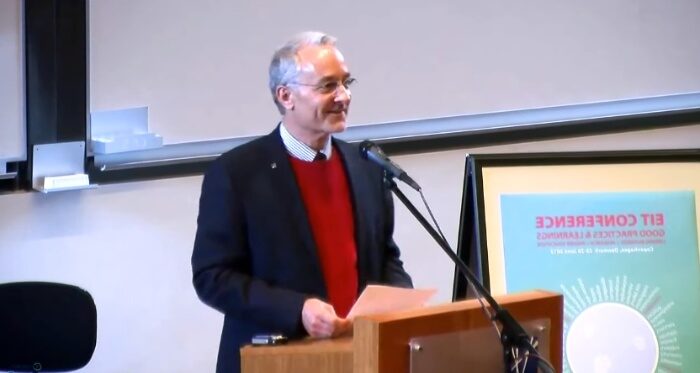The Environment Conference stands out as a source of inspiration and hope in a world that is ever more concerned about the health of our planet. Intelligent and motivated individuals from all over the world have gathered to address environmental issues. So, who should attend Environment Conference? Let’s find out.
Anyone interested in environmental issues should attend an Environment Conference. This includes professionals, students, researchers, and activists who want to learn more and share ideas. Additionally, policymakers and business leaders can benefit from networking and gaining insights into sustainable practices.
In this following blog, we will discuss the value of attending environmental conferences for various types of people. We’ll examine how each one contributes to preserving the environment and improving the globe going forward.
What is the Environment Conference?
The Environment Conference serves as a global nexus for experts, policymakers, and advocates of green initiatives. Through dynamic panels and workshops, attendees gain insight into urgent environmental challenges and innovative solutions. From climate change to conservation, diverse topics ensure a comprehensive overview of today’s ecoscape.
Keynote speakers hail from varied backgrounds, providing rich perspectives on global ecological matters. Like those found at the best environmental conferences, renowned researchers share cutting-edge discoveries, while leaders showcase sustainable business practices and urban development strategies. These insights stimulate discussion, creating collaboration among nations and industries.
Networking is a significant component of conferences. By connecting like-minded individuals, the event seeds new partnerships and projects. With every interaction, participants move closer to a shared vision of a sustainable and resilient future. Now, who are the participants of the environment conferences?
Who Should Attend Environment Conference?
The Environment Conference serves as a global guide for eco-pioneers. An environment conference can be defined as the hub of different researchers and professionals. The response to the topic: Who should attend environment conference? goes beyond a person’s occupation. A diverse range of people from all backgrounds attend this event, and they are all motivated by the same idea.
Environmental Enthusiasts and Activists
Active campaigners and advocates find the Environment Conference invaluable. It offers tools, knowledge, and strategies for impactful environmental campaigning. Connecting with peers amplifies the collective voice, driving change. By sharing experiences, activists can learn what works and what doesn’t in various campaigns. This exchange of ideas strengthens their efforts and inspires new initiatives to protect the environment.
Policymakers and Government Officials
Government representatives play crucial roles in shaping sustainable policies. By attending, they gain insight into pressing environmental issues and potential solutions. They also forge connections with experts, aiding informed decision-making. This collaboration helps policymakers understand the latest research and innovations. Engaging with activists and researchers ensures that policies are grounded in real-world needs and scientific evidence.
Researchers and Academicians
Academic professionals bring in-depth research and studies to the table. The conference serves as a platform to showcase groundbreaking environmental findings. It also develops collaborations, bridging academia and real-world applications. Among others, Canada has been hosting these events for academicians as well. They have the opportunity to participate in the upcoming environmental conferences in Canada along with researchers and experts. Researchers can receive feedback on their work from other experts, which can improve their studies. Building partnerships with organizations helps ensure that research translates into effective practices and policies.
Corporate Leaders and Business Owners
The corporate world is vital in driving sustainability. Entrepreneurs and CEOs gain insights into eco-friendly business practices. Simultaneously, they can demonstrate their commitment to green initiatives and responsible operations. Attending the conference allows them to learn from successful case studies and implement best practices in their own companies. By adopting sustainable strategies, businesses can improve their brand image and attract environmentally-conscious consumers.
Non-profit organizations
NGOs are often at the forefront of grassroots environmental movements. Attending boosts their understanding of global ecological trends and challenges. This knowledge increases their efficacy in executing missions and advocating for change. Networking with other organizations can also lead to potential partnerships that strengthen their initiatives. Sharing strategies and resources enables NGOs to maximize their impact on environmental issues.
General Public and Students
One doesn’t need a title to be an environmental advocate. Ordinary citizens, concerned about our planet’s future, can garner immense value. Students, the future’s torchbearers, get inspired and equipped for eco-centric roles. Attending the conference allows the general public to learn about local and global environmental issues firsthand. By engaging with experts, they can take actionable steps in their own lives to contribute to a healthier planet.
Conclusively, the Environment Conference beckons all who harbor a zeal for a sustainable world. Regardless of background, this platform is significant for sharing, learning, and igniting the change we so dearly need.
Reasons Behind Attending an Environment Conference
The health of our environment is at a peak point, making the discussions and deliberations at environmental conferences more crucial than ever. Here are compelling reasons why one should consider attending such events,
- Educational Opportunities: Conferences provide a platform for the latest research, findings, and solutions related to environmental issues. It’s an arena to learn about cutting-edge technologies, innovative methods, and best practices from leaders in the field.
- Networking: Meeting like-minded individuals and experts can lead to future collaborations, partnerships, or mentorship opportunities. This diverse mix of attendees can enrich one’s perspectives, connections, and initiatives.
- Advocacy and Awareness: Participation can bolster one’s knowledge and commitment to environmental causes. It’s a chance to lend one’s voice, advocate for change, and contribute to shaping policy and public opinion.
- Discovering Sustainable Solutions: Conferences often spotlight sustainable technologies, products, and strategies that can be implemented in businesses, communities, or personal lives. Learning about these can be transformative for institutions and individuals alike.
- Inspiration and Motivation: Hearing success stories, overcoming challenges, and seeing the passion of speakers and attendees can be incredibly inspiring. Such events can rekindle one’s motivation and commitment to environmental stewardship.
- Global Perspective: Environment-related challenges are global. By attending, one gets a broader view of how different countries and communities tackle environmental issues, offering a more holistic assessment and approach.
- Professional Development: For professionals in the field, such conferences can develop one’s career trajectory. They offer opportunities for training, workshops, and certifications which can be beneficial for career advancement.
Attending an environmental conference can be a transformative experience. It’s not just about realizing the state of our planet but actively participating in shaping its future for the better.
How does Each Group Contribute to Environmental Conservation?
Conservation is a shared responsibility, with diverse groups playing distinct roles. Each entity, from businesses to individuals, has unique strengths and contributions to make. Together, they weave the fabric of environmental protection, working in harmony to ensure a sustainable future.
Government Bodies
Governments lay down regulations that dictate environmental conservation protocols. They allocate funds for eco-friendly projects and research. Through policies, they steer the nation towards sustainable development. By enforcing laws, governments hold businesses and individuals accountable for their environmental impact. Their leadership is crucial in mobilizing resources and setting long-term conservation goals that benefit everyone.
Non-Governmental Organizations (NGOs)
NGOs mobilize resources and awareness at grassroots levels. Their hands-on projects restore ecosystems and protect endangered species. They act as vital bridges between communities and policymakers. NGOs often rely on volunteers and local knowledge to address specific environmental issues effectively. Their advocacy work helps amplify community voices, ensuring that the needs of the environment and local people are heard.
Businesses and Corporations
Corporates integrate sustainability into their operational blueprint. They innovate eco-friendly products and solutions for the market. By adopting green practices, they set industry standards and influence peers. Businesses can also invest in sustainable supply chains and practices that reduce their carbon footprint. Their commitment to corporate social responsibility can inspire others in the industry to follow suit, amplifying the positive impact on the environment.
Educational Institutions
Schools and universities shape future eco-advocates. Through curriculum and research, they create environmental consciousness. Extracurricular activities and projects further cement eco-friendly behaviors. Educational institutions also provide platforms for discussion and innovation in environmental science. By partnering with local communities, they can implement real-world solutions and empower students to take action.
Communities and Local Groups
Local groups understand their surrounding ecosystems best. They implement conservation methods customized to their region. Community-driven initiatives often lead to sustainable, long-lasting impacts. By engaging in local stewardship, these groups address unique environmental challenges. Often the cost to attend environmental sustainability conference creates difficulties, but their close ties to the area allow them to create effective conservation strategies and participate in events that reflect the needs and values of their community.
Individuals
Every person has the power to make eco-conscious choices daily. Personal habits, from recycling to using public transport, make a difference. Individual voices, collectively, drive change and influence larger entities. Simple actions like conserving energy and reducing waste can have significant environmental benefits. When individuals unite their efforts, they create a powerful movement for change that encourages businesses and governments to act.
The dance of conservation requires everyone to play their part. From towering institutions to singular voices, every effort is a step toward a greener planet.
Benefits of Attending Environment Conference
Environment conferences offer a wealth of benefits to those who participate. These gatherings serve as crucibles for knowledge exchange, collaboration, and inspiration in the world of environmental conservation. Here’s a breakdown of the advantages:
- Networking Opportunities: Forge connections with like-minded individuals, organizations, and potential partners, expanding your support network.
- Knowledge Sharing: Immerse yourself in the latest research, strategies, and best practices, equipping you with actionable insights.
- Inspiration: Witness impactful success stories and passionate speakers, fueling your commitment to environmental causes.
- Diverse Perspectives: Engage in discussions with experts from various backgrounds, promoting a well-rounded knowledge of environmental issues.
- Problem-solving: Collaborate on innovative solutions through workshops and brainstorming sessions, addressing environmental challenges more effectively.
- Policy Influence: Connect with policymakers, empowering you to advocate for evidence-based policies that drive positive change.
- Education: Participate in educational sessions and hands-on workshops to broaden your knowledge and skills in environmental fields.
- Experiential Learning: Take part in field trips and practical experiences to apply theoretical knowledge in real-world settings.
- Project Funding: Explore opportunities to secure funding for your environmental initiatives, helping you bring your ideas to life.
- Global Impact: By attending, you contribute to the global conversation on environmental issues, playing a part in the collective effort to build a sustainable future.
Frequently Asked Questions
Attending an environment conference can be a valuable experience for a diverse group of individuals. From professionals to students, various attendees can gain insights and network effectively. Here are some frequently asked questions regarding who should consider attending these important events.
What Types of Professionals Should Attend an Environment Conference?
Environmental conferences are beneficial for professionals in fields such as environmental science, policy, and engineering. Additionally, those involved in sustainability efforts, conservation, and resource management can gain valuable insights. Attending these conferences allows professionals to stay updated on the latest research and practices. It also provides a platform for networking with like-minded individuals and experts in the field.
Are Students Encouraged to Attend Environment Conferences?
Yes, students are highly encouraged to attend environment conferences. These events offer students a chance to learn from experts and gain exposure to real-world environmental issues. Attending conferences can also help students make connections for internships and future job opportunities. Moreover, it inspires them to engage in environmental advocacy and research.
Do Non-Governmental Organizations (NGOs) Benefit from Attending?
NGOs play a crucial role in environmental conservation and advocacy. By attending these conferences, NGO representatives can learn about new initiatives and strategies to implement in their work. They also have the opportunity to network with other organizations and potential collaborators. Engaging in discussions with policymakers and experts can ensure their effectiveness in driving change.
Can Business Leaders Gain Value from Environment Conferences?
Yes, business leaders can gain significant value from attending environment conferences. These events allow them to explore sustainable practices and innovations that can benefit their companies. They also provide opportunities to connect with other businesses and share best practices. By evaluating environmental challenges and solutions, leaders can better position their companies in the evolving market.
What Role Do Policymakers Play at Environment Conferences?
Policymakers play a vital role at environment conferences by shaping and influencing environmental policies. Their participation allows them to gather information about pressing environmental issues and potential solutions. By engaging with experts and stakeholders, policymakers can better understand the needs of the communities they serve. This interaction can lead to informed decision-making and more effective legislation for environmental protection.
Conclusion
Knowing the essence of “who should attend environmental conference?” is more vital now than ever in our rapidly changing eco-centric world. These gatherings serve as catalysts for significant change, uniting a multitude of sectors, from influential policymakers to the impassioned everyday individuals.
Every participant, irrespective of their background or profession, plays a distinct yet interconnected role in the complex tapestry of environmental conservation. The knowledge and tools acquired at these conferences not only empower attendees but also induct them into a global movement that champions our planet’s health.
Such conferences shine as beacons of hope in our quest for sustainability. By supporting collaboration, sharing insights, and encouraging collective efforts, they undeniably pave the way for a brighter, more sustainable future.








